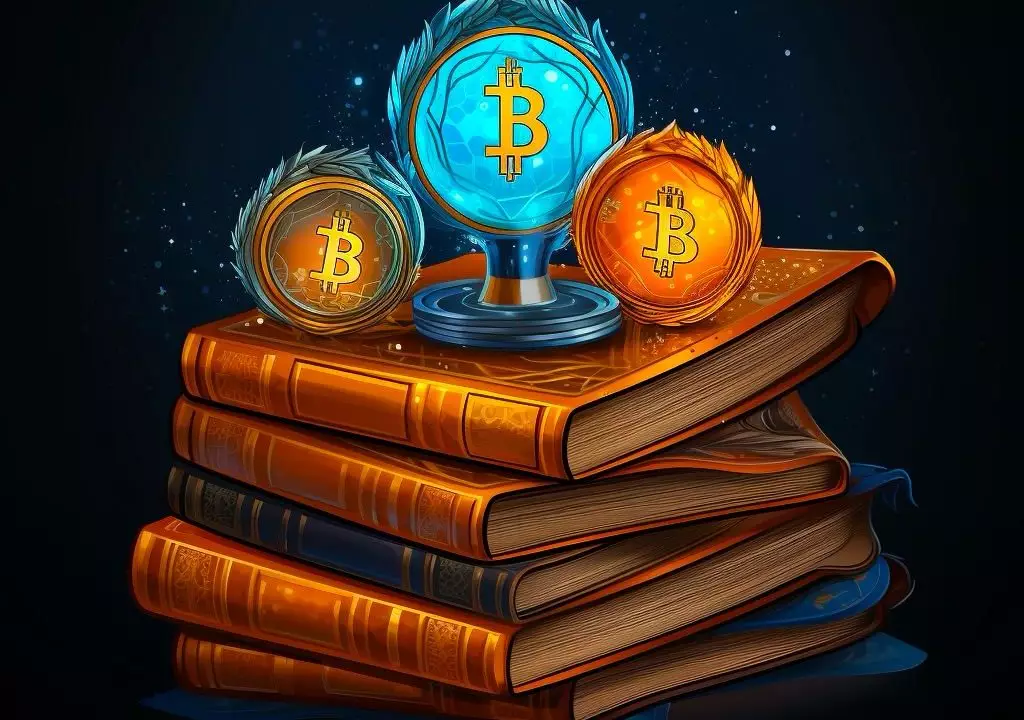
In keeping with our customary tradition of sharing our reading choices, as exemplified in our just-released winter 2023 compilation encompassing books, games, movies, and more, sourced collaboratively from the a16z crypto team, we present a selection of books recently curated for the giveaway library at our second annual a16z crypto Founder Summit. This year, we’ve added personal notes explaining the rationale behind some of these “staff picks”…
Remember: These books cater not only to crypto founders! The compilation spans biographies, company building, organizational history, creative inspiration, and science fiction—offering something for everyone in the crypto community and beyond.
…company building, how-to
“The Art of Doing Science of Engineering: Learning to Learn by Richard Hamming (Stripe Press)
Designing Data-Intensive Applications: The Big Ideas Behind Reliable, Scalable, and Maintainable Systems by Martin Kleppmann
“A highly digestible yet comprehensive exploration of the challenges in building, maintaining, and scaling distributed systems, this is my top recommendation for aspiring systems engineers. Kleppmann elucidates the intricacies of distributed systems before delving into topics such as data models, system design, and the future of data systems. While not explicitly addressing blockchains, the book lays a solid foundation for engineers seeking a deeper understanding of the distributed systems essential for blockchain development.” — Sam Broner, engineering
Scaling People: Tactics for Management and Company Building by Claire Hughes Johnson (Stripe Press)
A Theory of Fun for Game Design by Raph Koster
Thinking in Systems: A Primer by Donella Meadows
Think Faster, Talk Smarter: How to Speak Successfully When You’re Put on the Spot by Matt Abrahams
Editor’s note: Explore this related podcast where we delve into the book’s themes and their applications in technical settings, including the crypto industry.”
…builder biographies, organizations, and process of innovation
“Chip War: The Battle for the World’s Most Crucial Technology” by Chris Miller
“In this succinct and insightful exploration, Chris Miller traces the evolution of semiconductor manufacturing from 1947 to 2022. Upon concluding, readers are left pondering the future, with a profound understanding that places us all—founders, engineers, technologists, writers, and participants—firmly within the rich history of computing.” — Eddy Lazzarin, CTO
“The Making of the Atomic Bomb” by Richard Rhodes
“My all-time favorite non-fiction book, now rejuvenated by the Oppenheimer film release. Beyond its cinematic counterpart, Richard Rhodes’ work delves into the late-19th century origins of nuclear fission, progressing through the creation and deployment of the bombs and their aftermath. It’s not just compelling; Rhodes, a skilled science communicator, makes it an exploration of discovery, construction, and world-altering endeavors relevant for founders.” — Tim Sullivan, editorial partner
“Skunk Works: A Personal Memoir of My Years at Lockheed” by Ben Rich and Leo Janos
“How to Build a Car: The Autobiography of the World’s Greatest Formula 1 Designer” by Adrian Newey
“Adrian Newey’s autobiography unveils the mind of a legendary Formula 1 Aerodynamicist, offering remarkable insights into a brilliant engineer’s problem-solving prowess. From navigating Formula 1 restrictions to exploiting clever loopholes, Newey’s narrative details innovation and grit in this competitive sport. His contributions have left an indelible mark on F1 cars, influencing not only the sport but also everyday vehicles, high-performance sports cars, and EVs. A must-read for F1 enthusiasts, yet captivating for all.” — Sagar Dhawan, data scientist
“Shoe Dog: A Memoir from the Creator of Nike” by Phil Knight
“Can’t Hurt Me: Master Your Mind and Defy the Odds” by David Goggins
“David Goggins’ autobiography is an extraordinary account of his life as one of only 36 African American Navy Seals and an incredible endurance athlete. Born with a hole in his heart and severe dyslexia, facing an abusive drug-dealing father, Goggins defied the odds to build a remarkable career in the Armed Forces and as an extreme endurance athlete. His empowering message is clear: If I can achieve what I have against all odds, consider the potential within yourself. A recommendation I extend to every founder and CEO I collaborate with.” — Jason Rosenthal, operating partner
“Endurance: Shackleton’s Incredible Voyage” by Alfred Lansing
…tech trends, history, open source/ web3 themes
The Cathedral & the Bazaar: Reflections on Linux and Open Source by an Unexpected Revolutionary, Eric Raymond
The Evolution of Cooperation, Robert Axelrod
Seeing Like a State: Failures in Schemes to Improve the Human Condition, James Scott
The Sovereign Individual: Navigating the Transition to the Information Age, James Dale Davidson & William Rees-Mogg
The Inevitable: Grasping the 12 Technological Forces Shaping Our Future, Kevin Kelly
…sci-fi and other fiction
The Invincible by Stanislaw Lem, penned in 1964, stands out as one of the earliest science fiction works proposing the concept of ‘smartdust.’ Comprising nano machines, identical replicas individually harmless, they attain super-intelligence when forming a cloud. Interestingly, this smartdust notion bears a striking resemblance to blockchain technology. The novel is a compelling and top-notch science fiction piece. — Valeria Nikolaenko, research partner
Cryptonomicon by Neal Stephenson
Tomorrow, and Tomorrow, and Tomorrow by Gabrielle Zevin
…more creative inspiration
The Artistic Expression: Embracing Existence by Rick Ruben
The Nolan Transformations: Exploring the Films, Enigmas, and Wonders of Christopher Nolan by Tom Shone
…selected repeats from last year’s list
The Company: Unveiling a Revolutionary Concept by John Micklethwait & Adrian Woolridge
Empires of Light: Edison, Tesla, Westinghouse, and the Global Electrification Race by Jill Jonnes
Crafting the Internet: A Vision by David Clark
The Decline and Revival of Great American Cities by Jane Jacobs
Coding Democracy: Disrupting Power, Surveillance, and Authoritarianism Through Hacking by Maureen Webb
